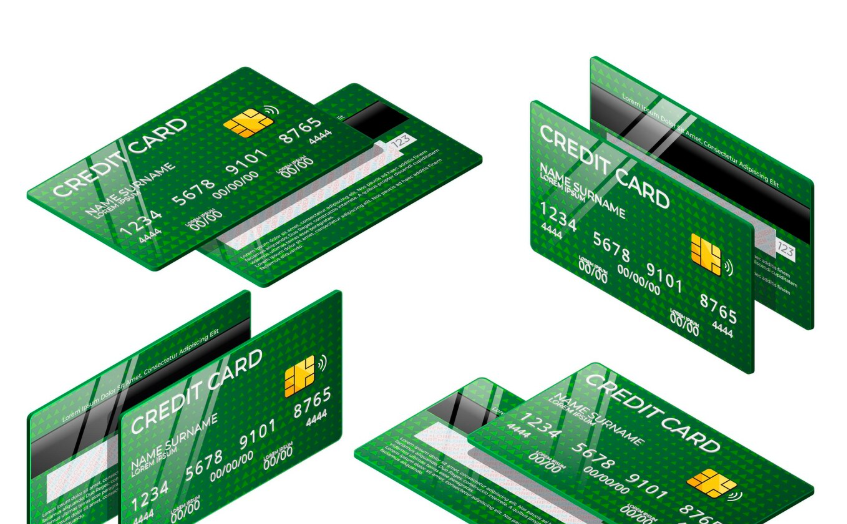The world of credit cards is constantly evolving, driven by advances in technology, changing consumer preferences, and regulatory shifts. As we move into 2025, credit cards in the UK are likely to undergo significant transformations, with new trends emerging to shape the way consumers use credit. From digital innovations to enhanced security features, the future of credit cards promises to be more convenient, secure, and tailored to individual needs. In this article, we explore the key trends that will define the future of credit cards in the UK by 2025.
1. The Rise of Digital and Virtual Credit Cards
A Shift Towards Virtual-First Solutions
In 2025, the role of physical credit cards is expected to diminish as digital and virtual credit cards take centre stage. With consumers increasingly relying on smartphones and wearables for everyday transactions, virtual credit cards—cards that exist only digitally—are becoming more popular. These cards are often issued instantly via mobile apps, offering a fast and secure alternative to traditional plastic cards.
Benefits:
- Instant Issuance: Users can receive and start using digital credit cards immediately after approval.
- Security: Virtual credit cards offer advanced encryption and tokenization, reducing the risk of fraud and theft.
- Integration with Digital Wallets: Virtual cards will increasingly integrate with mobile payment platforms like Apple Pay, Google Pay, and Samsung Pay, streamlining the payment process.
2. Enhanced Security Features and Biometric Authentication
Next-Level Security with Biometrics
As cyber threats continue to evolve, credit card companies are looking for innovative ways to enhance security. Biometric authentication—using fingerprints, facial recognition, or iris scans—is expected to become more common in credit card transactions by 2025. This technology can offer an extra layer of protection by ensuring that only the rightful cardholder can authorize payments.
Benefits:
- Reduced Risk of Fraud: Biometric authentication will make it nearly impossible for unauthorized users to access your credit card account.
- Convenience: Users will be able to make payments and access their accounts with a simple scan, making the process faster and more convenient.
3. Artificial Intelligence (AI) and Personalization
AI-Driven Financial Management
By 2025, artificial intelligence (AI) will play a central role in transforming credit card services. Credit card providers will increasingly use AI to offer personalized experiences based on a user’s spending patterns, financial goals, and preferences. AI-powered features could include smart budgeting tools, automated rewards redemption, and personalized offers or discounts from retailers.
Benefits:
- Tailored Experiences: AI will help customers manage their credit better by providing insights into spending habits and offering targeted suggestions for improving financial health.
- Smart Rewards: AI will enable credit card companies to offer dynamic rewards programs that adapt to users’ spending habits, making rewards more valuable and relevant.
4. Integration of Cryptocurrencies and Blockchain Technology
Crypto Payments and Blockchain Security
Cryptocurrency adoption has been steadily increasing, and by 2025, credit cards in the UK could integrate cryptocurrency payment options. Some credit card providers are already offering cards that allow users to spend Bitcoin, Ethereum, and other cryptocurrencies directly from their accounts. Blockchain technology, known for its security and transparency, could also be leveraged to enhance fraud prevention and offer a more efficient way to process credit card transactions.
Benefits:
- Broader Payment Options: Users will be able to make purchases using both traditional currencies and cryptocurrencies, expanding their payment choices.
- Faster Transactions: Blockchain could reduce transaction processing times, making credit card payments faster and more secure.
- Lower Transaction Fees: Blockchain technology could lower the fees typically associated with credit card payments, particularly for international transactions.
5. Sustainability and Eco-Friendly Credit Cards
Eco-Conscious Consumerism and Green Credit Cards
With an increasing focus on environmental issues, consumers in the UK are becoming more eco-conscious, even when it comes to credit cards. By 2025, more credit card issuers are expected to offer eco-friendly cards made from sustainable materials, such as recycled plastic or biodegradable components. Additionally, some cards will come with rewards or incentives for users who make environmentally responsible purchases, like supporting green businesses or using public transportation.
Benefits:
- Reduced Environmental Impact: Eco-friendly credit cards will reduce plastic waste and the carbon footprint of the financial industry.
- Green Rewards: Some cards will offer rewards that support sustainability, such as donations to environmental charities or discounts on eco-friendly products and services.
6. Buy Now, Pay Later (BNPL) Integration
Flexible Payment Options on Credit Cards
The rise of the Buy Now, Pay Later (BNPL) model has changed the way consumers approach purchases, allowing them to pay in installments without interest if paid within the agreed period. In 2025, credit card providers will likely integrate BNPL options directly into their offerings, giving users the ability to split purchases into manageable payments. This feature could help make larger purchases more affordable without incurring interest, as long as the terms are adhered to.
Benefits:
- Improved Flexibility: Users will have more control over how and when they pay, without the burden of high-interest rates.
- More Affordable Purchases: BNPL integration will make it easier for consumers to buy high-ticket items and pay over time, without relying on personal loans or overdrafts.
7. Financial Inclusion and Credit Access for All
Expanding Credit Access with Alternative Data
By 2025, credit card companies in the UK will increasingly use alternative data to assess applicants for credit. This means that, in addition to traditional credit scores, factors such as utility payments, rent history, and even social media activity could play a role in determining creditworthiness. This trend will help extend access to credit for people who may not have a traditional credit history but have a proven track record of responsible financial behavior.
Benefits:
- Increased Access to Credit: More people will be able to access credit cards, helping those with limited or no credit history improve their financial standing.
- Greater Financial Inclusion: Alternative data will give lenders a more complete picture of an applicant’s financial behavior, allowing for fairer credit decisions.
8. The End of Annual Fees and More Flexible Terms
Fee-Free and Customizable Credit Cards
In the future, credit card companies may offer more flexible and customizable terms. The traditional structure of annual fees, foreign transaction fees, and rigid rewards systems could give way to more dynamic pricing and fee structures. Some providers may even eliminate annual fees altogether or offer users the option to choose the features and benefits they need the most, rather than paying for a one-size-fits-all package.
Benefits:
- Cost-Effective Options: Users can choose cards that suit their needs and avoid paying for unnecessary features or fees.
- Greater Customization: Consumers will have the ability to tailor their credit card terms, such as payment dates, rewards categories, and credit limits, based on personal preferences.
9. Conclusion: A Dynamic and Consumer-Centric Future
The credit card landscape in the UK is set to undergo significant transformations by 2025, driven by advancements in technology, changing consumer demands, and evolving regulatory frameworks. Digital and virtual credit cards, enhanced security features, and personalized financial tools will make managing finances more seamless and secure than ever before. Additionally, with the rise of cryptocurrency integration, sustainability efforts, and flexible payment options, consumers will have greater choice and control over their credit cards.
As these trends continue to unfold, the future of credit cards will undoubtedly be shaped by a consumer-centric approach, offering more tailored, convenient, and sustainable financial products that meet the needs of today’s tech-savvy and environmentally conscious society.


